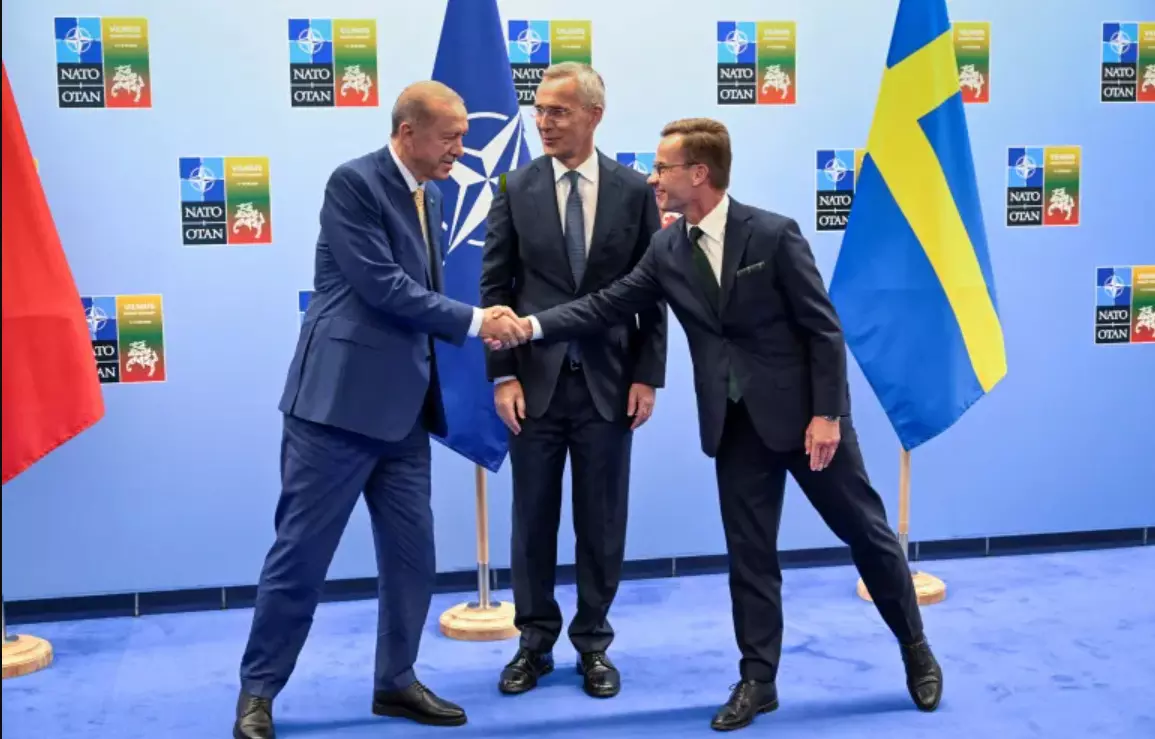On an expansive trail

With Turkey shedding its resistance, Sweden — a Nordic nation — is all set to become the 32nd member of the North Atlantic Treaty Organisation (NATO). Earlier, in April this year, Finland had deposited its instrument of accession at NATO Headquarters in Brussels to become a member of the Western military alliance. Notably, Sweden’s urge to join NATO has been catalysed by Russian aggression against Ukraine. Apart from Sweden and Finland, Ukraine itself is desperate to join the alliance. Founded in 1949, the US-led intergovernmental military alliance played a prominent role during the Cold War against the USSR. Following the disintegration of the USSR, speculations arose that NATO will lose its relevance over time. This, however, did not occur, as Russia continued to be the target of the alliance that states “collective defence” of its members as its primary objective. Russia has time and again acted in its own way to counter the expansion of NATO — only to fuel it further! In fact, Russia’s ongoing aggression against Ukraine has provided lifeblood for the dying NATO. The military alliance is evidently on a path to revival of sorts. In the case of Sweden, following the onset of the Russia-Ukraine war, the public opinion in the Nordic nation that has embraced wartime neutrality for over the last two centuries, shifted drastically in the favour of the military alliance. In fact, Sweden's right-wing Prime Minister Ulf Kristersson has managed to turn NATO membership issue into a key foreign policy priority. The Swedish government is learnt to have extended a range of offers to Turkey, including the support in Turkey’s bid to join the European Union. In Ukraine, the sentiments are even stronger and clearer — to an extent where Ukrainian President Volodymyr Zelenskyy publicly expressed his anger over the delay and uncertainty in the process of his country’s inclusion in NATO. Over the past year, the ambiguity that prevailed around Ukraine’s association with NATO — a hidden apprehension of Putin — has given way to a clearer approach on the part of Ukraine. Ironically, the recent expansive trail of NATO is fuelled by Russia’s own actions, and has become one of the biggest headaches for the eastern superpower. Interestingly, NATO is now endeavouring to extend its target beyond Russia. It apparently seeks to counter China —which is undoubtedly the biggest rival of the West, particularly the US. The communiqué of the Madrid Summit of NATO in 2022 had mentioned China only once, but the Vilnius communiqué this year mentioned China much more frequently, and termed it as a threat to NATO in the fields of politics, security, science and technologies. Certainly, apart from Russia, China too has issued strong statements against the latest NATO summit. Global Times, the mouthpiece of the Chinese establishment, has asserted that “instead of reflecting on its own responsibilities, NATO, as a regional military bloc, has been making groundless accusations, meddling in affairs beyond its borders, and creating confrontation.” If indeed taking on China is the plan of NATO, then it must be eying for greater expansion. This is where the concept of NATO plus comes in. The term "NATO plus" is often used to describe initiatives where NATO expands its cooperation beyond its traditional partners to include countries or organizations that share common goals or face similar security challenges. These initiatives can take various forms and may include dialogue, information sharing, joint exercises, capacity-building, and collaboration in specific areas of interest. Since India is the foremost counter to China in the South Asian region, the United States has been constantly pressing India to join the NATO plus framework. India’s External Affairs Minister has, however, outrightly rejected such a possibility, saying that “NATO template does not apply to India”. Considering the military assistance that NATO plus can provide during times of border confrontation, it may be tempting for India to be inclined towards the framework. However, any such inclination can be detrimental to India’s interests, as it will distance the country from Russia — which is a major pivot balancing geopolitical situations in South Asia. The expansion of NATO is a significant phenomenon. Countries, including India, must tread cautiously.



